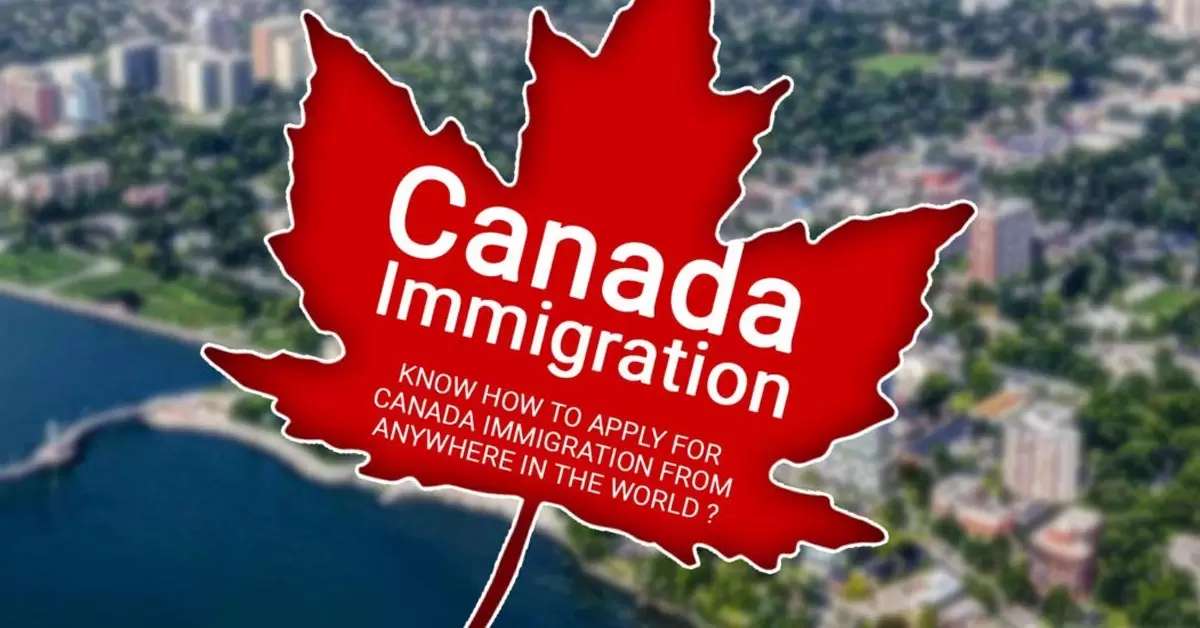
Canada has emerged as one of the most preferred destinations for immigrants worldwide. With its inclusive immigration policies, diverse culture, strong economy, and excellent quality of life, many aspiring individuals seek to immigrate to Canada. However, one crucial question that arises in their minds is the success rate of Canadian immigration visa applications. Assessing this success rate is essential for prospective immigrants to understand their chances of obtaining a visa and realizing their dream of living and working in Canada. The process went smoothly, with the assistance of immigration experts in Pakistan.
Success Rate Analysis:
In 2021-22, Immigration, Refugees and Citizenship Canada (IRCC) granted 329,213 study permits and accepted 60 % of all applications for student visas. Compared to this, the approval rate of study permits for the 1st quarter of 2022 fell to 55%.
Quantifying the success rate of Canadian immigration visas can be challenging, as it varies depending on various factors, including economic cycles, changing immigration policies, and program-specific requirements.
Indeed, the success rates for Canadian immigration visas can fluctuate and depend on individual situations. To make informed decisions, it’s advisable to regularly review up-to-date information and seek personalized guidance from a Canadian immigration consultant who can assess a specific case and provide tailored advice.
Successful Factors for Canadian Immigration Visa
- Language Proficiency:
Proficiency in English or French is a critical factor affecting the success rate of Canadian immigration visa applications. Applicants are required to take language proficiency tests, such as IELTS for English or TEF for French. Higher scores in these tests increase the chances of successful visa approval.
- Educational Background:
Educational background is a critical success factor for a Canadian immigration visa. Canadian authorities highly value academic qualifications, especially if they align with in-demand occupations. Higher education and relevant degrees can improve eligibility and contribute to a higher Comprehensive Ranking System (CRS) score, boosting prospects for successful immigration.
- Work experience:
Work experience is a critical success factor for Canadian immigration visas. Immigration authorities highly value candidates with relevant work experience, particularly in in-demand occupations. Applicants with such experience are more likely to meet eligibility criteria and secure their place in pathways like Express Entry or Provincial Nominee Programs.
- Age:
The age of an applicant plays a significant role in the success of their Canadian immigration visa application, as it directly impacts one’s Comprehensive Ranking System (CRS) score. Applicants between 25 and 30 years receive the maximum points, making them more competitive. As age increases, CRS points decrease, underscoring the importance of applying at a younger age for a better chance at success.
- Adaptability:
Adaptability is also a crucial success factor in the Canadian immigration process. Having a job offer in Canada, a close relative in the country, or prior study or work experience in Canada can enhance your Comprehensive Ranking System (CRS) score, increasing your chances of a successful visa application.
Role of immigration consultants:
Many applicants seek the assistance of immigration consultants to improve their chances of success. Immigration experts in Pakistan, such as Highbrow, play a significant role in the immigration process. They offer expertise in Canadian immigration laws, guide individuals to choose the best pathway, assist in accurate application submission, provide interview coaching for programs with interviews, ensure compliance with eligibility requirements and immigration regulations, and offer solutions to any application-related issues that may arise. They make the immigration process smoother and more efficient for individuals seeking to move to Canada.

